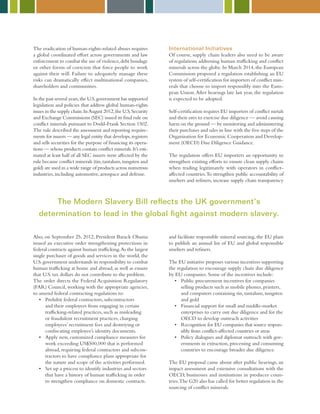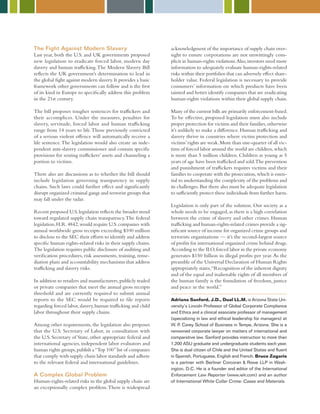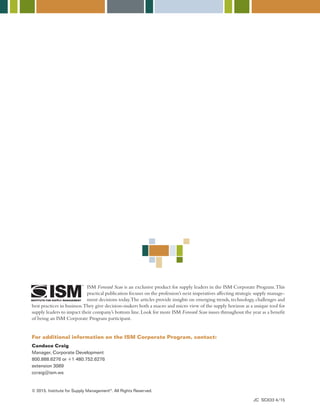Global supply chains expose companies to risks associated with human rights abuses in their supply chain. Governments and international organizations are taking coordinated actions to address these issues through legislation and policies. The US, UK, EU, and ILO are developing regulations requiring companies to conduct due diligence on their suppliers to prevent forced labor, slavery, and human trafficking. While progress is being made, human rights risks in global supply chains remain a complex problem requiring a collaborative global solution that also protects victims.



